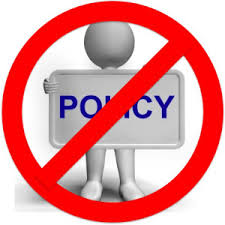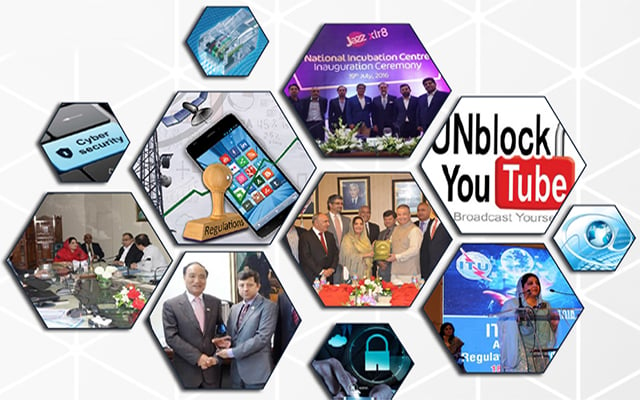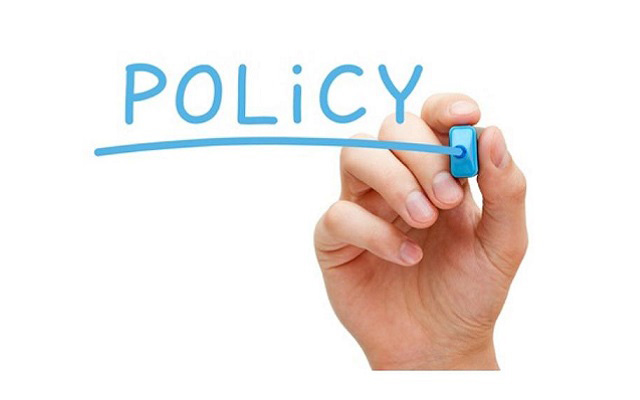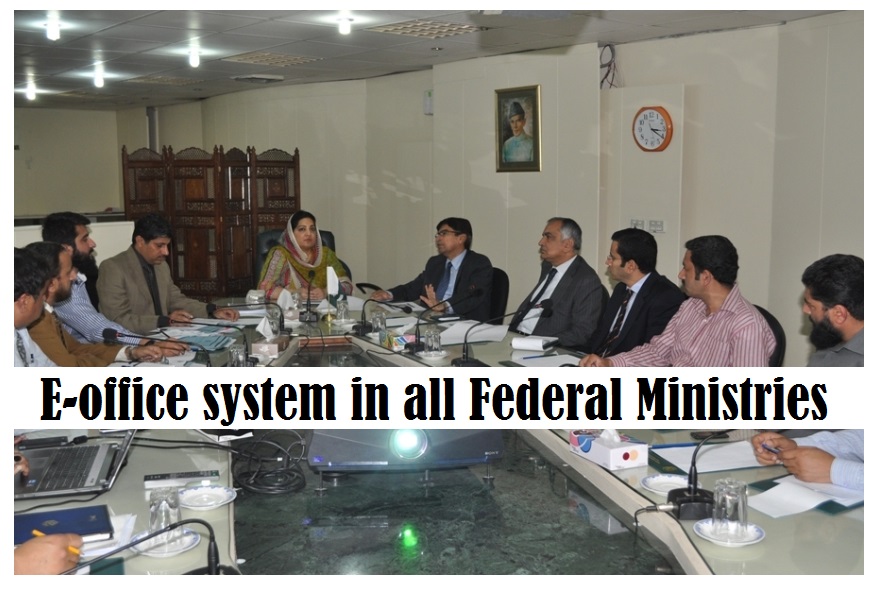MoITT 2 Years Performance: Still No ICT Policy
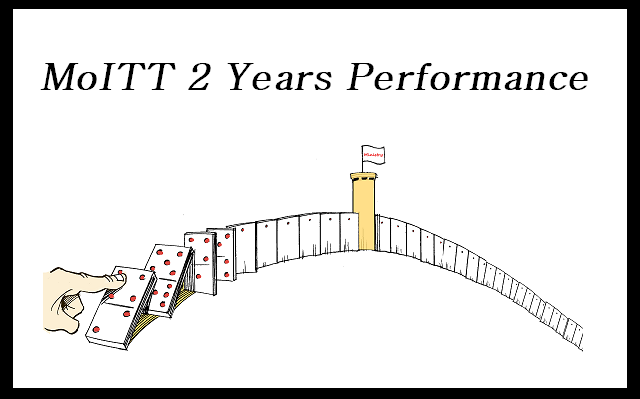
Technology has incredible power to improve people’s lives, foster economic growth, and create opportunities for individuals, companies, and nations around the globe. Over the last few years, the transformative potential of information and communication technologies has been well witnessed by the world. Apart from developed nations, the underdeveloped and developing nations have also realized the potential of ICT industry in bringing reforms that is why they are struggling hard to reap benefit from it. Pakistan’s standing in this regard has also improved as compared to past years. A year back just after the 3G/4G auction, we highlighted the performance of the MoITT and it is time to check upon what our ICT Ministry has been doing for the past year or so and how have they done on the few areas we identified they need to focus a year back.
3G/4G Auction
The transparent spectrum auction of 3G/4G was indeed the major achievement of PTA but the Ministry of Information and Technology (MoITT) equally needs to be appreciated for finally making it happen. While, much time was taken for this spectrum auction to happen, the process completion and that too in a very transparent manner is a great achievement of current government and deserves a pat on the back. For this Pakistan also won GSMA 2015 Spectrum for Mobile Broadband Award.
Abolition of ICH
International Clearing House regime (ICH), a consortium of Long Distance International (LDI) operators was formed to terminate all international traffic through a single gateway exchange. This eliminated competition from the market and was introduced by the previous government in August 2012 (ICH Directive) by active lobbying of some LDI operators.
The present Ministry this year abolished ICH as it cost Rs. 400 billion of loss to the country. The withdrawal of International Clearing House (ICH) has resulted into significant decrease in grey traffic in Pakistan; which is a worth-praising initiative taken by the Ministry.
Nation ICT Policy 
When it comes to the smooth running of an organization or ministry, the concept of “Policy” is fundamental to it. Policy is defined as “A plan or course of action, as of a government, political party, or business, intended to influence and determine decisions, actions, and other matters” and without which good governance cannot be ensured. The national ICT Policy document, should have been delivered on priority bases as one would have expected from the present Government that claims to be business friendly. Unfortunately, we still don’t have any National ICT Policy after 2 years of the present Government.
While, the MoITT claims that integration of telecom sector policies are being done with the assistance of World Bank funded consultants. It is reported that the policy does not have an IT component, which makes the entire policy update and integration exercise futile- as the IT Sector is the only sector in the entire ICT Industry having maximum local component and is important for the growth of the ICT Industry. It is also significant to note that the last ICT policy was made for 5 years in 2003 and was due to be reviewed in 2008. Strangely completion of policy document is still on the Ministry’s” 2014’s milestones to achieve” list-almost out by a year.
An international consultant was hired for reviewing and integrating the previous policies; an initiative that was taken in collaboration with the World Bank which also provided a grant of USD 0.5 million for the said purpose. The draft made by the World Bank consultants was circulated and is still available on the MoITT website. However, since last year it still remains there and is only a Telecom Policy Draft. It is very sad that while the Global ICT industry has moved towards convergence of policies, our Ministry of IT & Telecom is doing just the opposite i.e. re-drafting stone-age policies. Strangely, even the World Bank that claims to be one of the finest development institutions or their overpriced consultants hired for the job failed to highlight this to the Government and must share the burden of this.
Recommendation
Although, Pakistan ICT Industry is facing some serious challenges some of which were inherited from the previous Government but the opportunities were and are even greater. MoITT should accelerate its efforts if any being made in coming up with a comprehensive ICT Policy than a half cooked Telecom Policy document.
[pull_quote_left]The National Assembly Standing Committee on Information Technology approved the Bill in April 2015 despite criticism on the basis that the bill was prepared behind closed doors and it violates the rights of freedom of expression of common man[/pull_quote_left]It also has to act fast to cash upon these opportunities as this sector cannot afford to have a snail pace motion as we have seen in the previous two years by maintaining status quo on important issues. ICT progress certainly will be a catalyst in turning the economic wheel and making this a very vibrant economy improving the overall socio-economic condition of the country.
e-Government
The tech industry is always in flux. Frequent new products and category innovations are defining and redefining the sector’s constantly shifting landscape, to cope with these changing trends one must have to work hard and grab the opportunities available to it. Additionally, E-Government and more recently M-Government has been employed by developed as well as developing countries to be an enabler toward accelerating processes, delivering a higher level of service to the citizens and businesses, increasing transparency and accountability while lowering costs. Additionally, in developing countries it has been recognized as an enabler toward projecting governments in to the 21st century while throttling multiple generations of technology. But unfortunately our Ministry is wasting so much time in designing and re-structuring same things; which indicates its ineffective approach towards the most important sector of Pakistan. One such example includes the establishment of National Information Technology Board (NITB).
The Musharraf Government in 2002 with the same vision established the E-Government Directorate (EDG) and also invigorated Pakistan Computer Bureau (PCB) to help with the objective under the Ministry of IT & Telecom. The “Electronic Government Directorate” and “Pakistan Computer Bureau” started to promote the e-Governance in the public sector departments.
While, they not only started working themselves but also engaged private companies as an outsourced partner to expedite the herculean task of automating government. These organizations started working and achieve some good results initially but as time passed by and especially during the previous Government regime when a notorious Secretary IT & Telecom took over the reins of the Ministry, the organization was filled with good for nothing Government bureaucrats replacing technocrats and experts. Moreover, the organization remained indifferent to the information technology requirements in terms of customer’s capacity building, project management, O&M Functions as well as effective monitoring of third party deliverables. The present Government and their IT Managers, took a 360 degree shift when the Ministry decided to dissolve both of these organizations. Professionals leaving the organization was last nail in the coffin and Bureaucrats who took over as a stop gap solution showed indifference towards the projects that were already started or were about to start. The MoITT also referred their cases to Federal Investigation Agency (FIA) sighting excessive corruption.
Against, the conventional logic of improving and refining the system, the Ministry in 2013 decided to abolish both EDG and PCB and proposed that the Ministry will establish a new setup. Two years have passed since then but we didn’t see any organization groomed to bring technology into the government departments nor the EDG and PCB probing case results were finalized. If the Ministry is unable to bring reciprocal reforms to the system it should not have in the first place wasted time by dissolving the existing institution but it would have rather done good if they corrected them, which was a much easier and rational approach.
The Ministry is also reportedly working on establishing a new organizational setup to be called “National Information Technology Board (NITB)”. Unfortunately, it has nothing new to offer besides a name change. The supposedly new set-up will have the same functions, same set of rules and even the same set of employee structure that EGD had. It is also to be governed by the government yard stick for promotion and reporting. One just feels at a loss on the rational for going through the drill at tax payer’s expense, if we only have to see some face changes and creating same structure of incompetence that would end up being corrupted. It takes more than a merger to improve the efficiency of the department and without addressing the fundamental and bureaucratic issues of hiring/firing, merit based system and check and balance, nothing great could be achieved. We will keep our fingers crossed on the outcome and efficiency of the National Information Technology Board.
Unfortunately, the Government of Pakistan is oblivious of its strength and it is not applying its energies in the right direction to take advantage of the opportunities that exist. Modernizing Government through intervention of technology is the need of hour for Pakistan. Offices of Government sector are alien to this idea and worth of eGovernment which is a huge disappointment. Along with this, there must be some trainings organized for officials working in Government departments to meet the present day demands and also perform their duties more effectively.
Recommendations
The Ministry should concentrate more on getting rid of the lethargic bureaucracy, incompetent and corrupt people and bring in new processes that deliver like the one used in private sector organizations rather than break and create same set of organizations just to have new set of people who eventually will not be able to deliver.
Electronic Crime Bill
Another failure appeared in the case of “Electronic Crime Bill”. On the cybercrime front, MoITT has submitted a draft Prevention of Electronic Crime Bill to the Prime Minister for cabinet approval after consultation with stakeholders. The National Assembly Standing Committee on Information Technology approved the Bill in April 2015 despite criticism against it on the basis that the bill was prepared behind closed doors and it violates the rights of freedom of expression of common man.
[pull_quote_right]The recently imposed taxes have further infuriated the overall situation and now connected Pakistan seems to be more or less a dream difficult to achieve in near future despite idealizing “Pakistan Vision 2025”[/pull_quote_right]In order to counter that, National Assembly invited suggestions from civil society and other relevant stakeholders. A public hearing at National Assembly was also held on proposed Cyber Crime Bill but unfortunately of no use. At last the Cybercrime Bill was postponed by NA Standing Committee for further improvements in May 2015 and these improvements have not yet seen the light of the day.
Recommendations
It seems that the Ministry postpones an ongoing process and jumps into another matter and expects to complete it while the previous remains lingering. The Ministry should carefully design Cybercrime law like many other developed countries; which will protect citizens from cybercrimes. It must invite and discuss with concerned stakeholders and come up with the final updates on the bill.
ITU Membership
In October 2015, Pakistan was elected for the administrative council of the International Telecommunication Union (ITU). The victory was attributed to the collective efforts of telecom industry of Pakistan. While, this is a good development and will go a long way in improving Pakistan’s image as a country but ITU itself has become a toothless organization with GSMA taking center stage due to growing influence over the mobile operators association in policy, regulatory, development and most of all technical issues.
Weak Virtual Presence
The MoITT Ministry should be a show case for others to emulate in the cyber world starting from its web site. The dilemma is that while its own official website is not even updated regularly what to expect from others. Some of the news like “Draft of Prevention of Electronic Crimes Bill 2015” is shown as a new item although it has been there for weeks if not months. The Ministry should just outsource there web site to a professional company not only for a better design but more importantly for keeping the content updated, as we do not expect a lot of creativity coming from the existing IT lot that Ministry has gathered on its pay roll.
Telecom Sector Taxation
The recently imposed taxes have further infuriated the overall situation and now connected Pakistan seems to be more or less a dream difficult to achieve in near future despite idealizing “Pakistan Vision 2025”. Taxes in Pakistan are already three times higher than in neighboring countries like India and we boost amongst the top 10 when it comes to taxing the people for owning and use of mobile and fixed networks. Mobile phones and internet must be provided as affordable as possible to the public and this is only possible if MoITT realizes its core function to fight for this un-balanced and biased taxation regime.
Sinking WLL Industry
Unfortunately the Wireless Local Loop (WLL) industry is somehow disappearing from the scene because of the negligence of all relevant stakeholders but the larger burden is on the policy maker. TeleCard, WorldCall Telecom Ltd., Wateen Telecom (Pvt.), Diallog and DVCom Data (Pvt.) Limited, are the almost doomed WLL operators in Pakistan. The only surviving PTCL WLL operator is also on the list but has only survived because they are one of the few first ones who offered the world first EVDO-Rev A, then Rev-B and now LTE. However, in the wireless broadband business in which they kind of had a monopoly (although limited device offering because of regulations) is now being seriously challenged by the MNOs. The declining revenues clearly indicates that it will be challenging for them to survive in the absence of any policy intervention.
TeleCard, WorldCall Telecom Ltd., Wateen Telecom (Pvt.), Diallog and DVCom Data (Pvt.) Limited, are the almost doomed WLL operators in Pakistan. The only surviving PTCL WLL operator is also on the list but has only survived because they are one of the few first ones who offered the world first EVDO-Rev A, then Rev-B and now LTE
Recommendations
The government needs to provide some oxygen in the shape of policy and regulatory incentive for the remaining surviving operators or for that matter, to PTCL on priority basis so that WLL operators continue their journey and at the same time ensure that no more people get jobless because of such closure that we have seen in most cases. The MoITT should create a task force to ensure that some of these WLL operators are provided opportunity to either merge within or with mobile operators for a smoother journey ahead.
MoITT Ministry is seen self-praising for the recent title given to it for successful 3G/4G auction, an accomplishment that was achieved two years ago. According to the latest performance audit conducted by Policy Research Institute of Market Economy (PRIME), a little known Islamabad based think tank, MOITT is quoted as the best performing Ministry in Federal Government. Interestingly, the link of PRIME on Ministry website is not working, one has to google it; which necessities that IT administration within needs to be overhauled in the Ministry. MoITT performance measured against Ministry of Water & Power or others Ministries certainly will make it a winner but it should not be measured against the known losers. MoITT should be measure against international counterparts and it can do well if it moves ahead with the many projects of IT that are still either pending or haven’t been started yet.
Time is ripe for enhancing economic integration through MoITT which is backbone of country to ensure success. Modern world, particularly developed countries, are taking full advantage of Information and Communication Technologies where they not only use it for reshaping their commercial industries but also for improving their socio-economic condition. Being a million dollars industry, thousands people are depending on ICT for earning their livelihood. We feel that Pakistan ICT Industry has lot of opportunities and if the MoITT can overcome its challenges, the ICT sector could become the turning point in making a very vibrant economy and improve the overall socio-economic condition of the country. The tech industry can be reshaped in numerous ways but only if there is a will to change it.
PTA Taxes Portal
Find PTA Taxes on All Phones on a Single Page using the PhoneWorld PTA Taxes Portal
Explore NowFollow us on Google News!